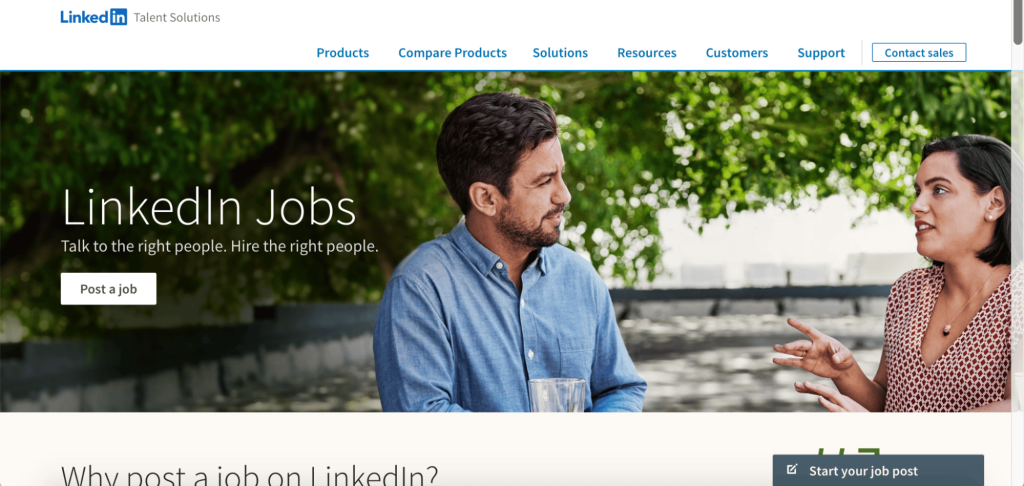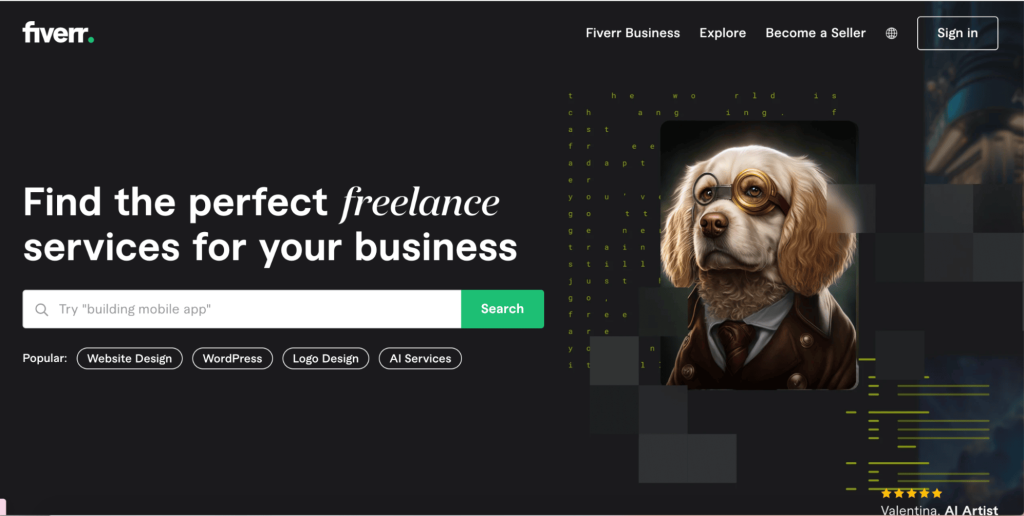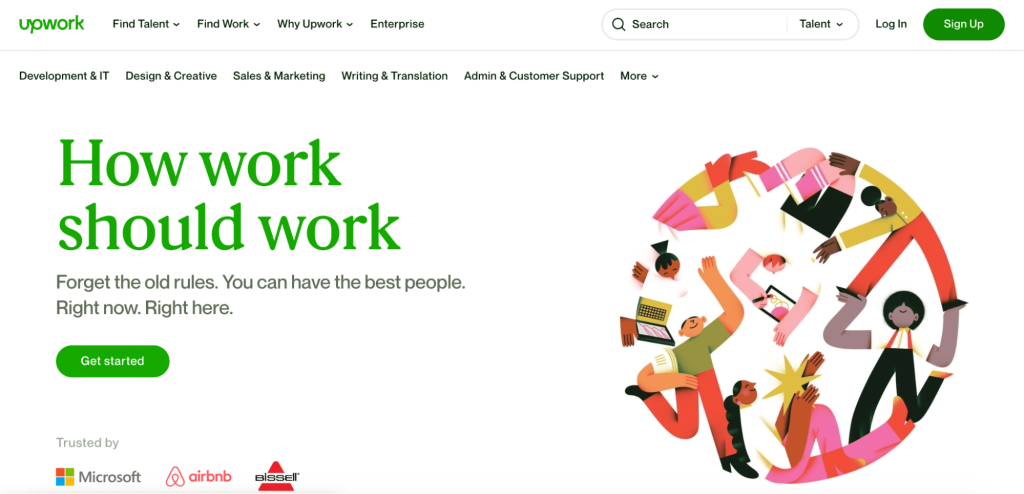Freelancing has grown since the COVID-19 pandemic – and it shows no signs of slowing! McKinsey estimates that by 2030, there’ll be 500 million freelancers worldwide.
For merchants, hiring remote workers or freelancers to take on some of the tasks can help you meet work demands and stay competitive in today’s fast-paced marketplace, and accelerate growth to take your company to the next level.
But how does the process of hiring a freelancer work? We take you through the benefits of hiring freelancers, the types of jobs you can give to freelancers, and popular freelancer management and payment platforms.
Why Are More Companies Hiring Freelancers?
We mentioned a few above, but here are more reasons why hiring freelancers is a great idea:
- Access to specialized skills from a global talent pool. Hiring a freelancer can boost skills that your team may not have without providing extensive training. And thanks to the Internet, this talent can come from anywhere worldwide.
- Cost-effectiveness. Freelancers can be temporary, contract-based help. You hire when you need them, which means they don’t require access to employment benefits like a full-time employee.
- Flexibility. Freelancers provide an extra pair of hands (eyes or ears too) when you need them. On the other hand, full-time staff does not have the same flexibility. They are not available on short-term notice or a when-you-need basis which means you end up paying for “work” that’s not being done.
- Find talent when you need it. With such a large talent pool available, you are sure to find someone with the skills and experience that fits your needs.
What Can a Freelancer Do?
One reason you might hesitate to hire freelancers is they often feel the tasks must be done by you. This common misconception prevents business owners from focusing on more critical business tasks.
Freelancers can help with tedious short-term, one-off, or repetitive tasks. Here are just some of these tasks:
- Photography projects
- Web design and management – creating and updating your website
- Copywriting – writing blogs and web content
- Social media management
- Secretarial/time-management tasks – managing your weekly calendar
- Event management – planning and executing
- Human resources
- Accounting
Manage Expectations When Hiring Freelancers
The big question is: With so much talent available, how can you find the right person for the job?
During the Covid-19 pandemic, many looked to freelancing to earn extra cash— including the tricksters. Here are some things to look out for – and how to avoid them when hiring a freelancer.
Outsourced help
In 2013, a story went viral of a web developer in the USA who was caught outsourcing his job to China, paying them a fraction of his salary while he surfed the Internet and played video games.
Sadly, this is not a unique story today. In fact, it is on the rise. Essentially, a freelancer will pretend to work as an individual contractor but outsource the work to a different team. For you, as an employer, this could mean that trade secrets are shared with people who have not been vetted and approved.
Ghosting
You think you have found the perfect person for the job, but then they disappear; you have been ghosted.
Because you don’t see the person on a day-to-day basis, it can be difficult to keep track of activities and progress. Not only does this waste your time and potentially delay the delivery of a project, but with no communication from the freelancer, you don’t know when to cut your losses and try to find someone else to do the work.
Multiple applications
Sometimes, people want the job so badly that they are willing to apply twice or more! At Pixc, we once received three different applications from one person. We discovered this after reviewing the metadata on their CVs. Crazy, right?
Without doing that extra due diligence, we could have been tricked into hiring a fake person – which does not give great confidence in the client-freelancer relationship.
Increased rates
At the pandemic’s beginning, freelancer rates remained relatively stable and largely unchanged. However, this is likely to change.
Although it is a competitive marketplace for freelancers, they face increasing cost of living – including tax rate hikes in some countries – meaning they may start passing these costs down to employers.
How to Avoid These Pitfalls When Hiring a Freelancer
- Review their portfolio. Before hiring a freelancer, ask them to share their experience portfolio. This proves their credibility and can help you identify if they have the skills you need.
- Ask for references – and follow up on them to confirm that they were honest in their resumé or portfolio.
- Get recommendations. If you have worked with other freelancers in the past, ask them if they have any recommendations of people they have in the network who could help you fill the role.
- Require regular check-ins. Setting up daily, weekly, and monthly communication is a great idea. It doesn’t have to be a call. You can require that they provide frequent updates on tasks they’ve completed, are currently working on, and plan to work on soon.
- Conduct a brief onboarding process. Although they may only be part of your team short-term, to be an effective team member:
- Make sure that their tasks are clearly defined.
- Make sure to agree on their payment/fee upfront, so expectations are set.
- Make sure you have time to hire a freelancer, ensuring you’re available to manage them and answer questions.
- Don’t be afraid to let them go. Sometimes the freelancer you hired is not a good fit for the company. It’s best to simply cut ties before things go bad.
How and Where to Hire a Freelancer
Using the services of a freelancer should make your life easier – so managing their tasks and paying them should be easy too!
There are many platforms where you can find a freelancer to meet your needs. For more general tasks, LinkedIn, Fiverr, and UpWork are great resources.

LinkedIn is a social networking platform for businesses and professionals to connect. It’s one of the obvious first choices for individuals to look for a new job, making it an excellent hub for finding eager freelancers.
Fiverr

Fiverr is a freelance platform that generally offers digital marketing services like graphic design, web development, and content creation. It’s a great option if you have a limited budget, as you can buy services for as little as $5, but you must use your discretion as cheap gigs may mean low-quality services.
Fiverr does not vet their freelancer, so virtually anyone, good and bad, can offer a service. However, they have a Pro version that hosts all the Fiverr verified freelancers, but as you can imagine, it costs more.
Upwork

Upwork is also a good marketplace that makes finding freelance candidates easy. You can search for a skill set, browse a list of profiles, or post projects so freelancers can come to you with proposals.
But with more freelancers in the marketplace, they are getting more specialized to help differentiate themselves from the crowd. Examples of hiring platforms for people with niche and specific skills include TopTal for software engineers and 99Designs for designers.
Toptal

Toptal prides itself on having the largest network of freelance tech talent. In addition, they are known for being exclusive with freelance access, so yoyou’reuaranteed to find exceptional candidates for your projects.
Toptal promises role-specific quality, solid soft skills, and a no-risk trial if their freelancer dodoesn’teet your needs.
99Designs

99Designs is a global platform for all things branding and design; therefore, you’ll only find graphic designs there. Its design categories include logos, business cards, packaging, web and app design, and book covers.
Good for your business, overall
Hiring a freelancer can be great for your business, helping you to access the skills you need to expand and grow your company and get more clients – if you find the right person. Hiring freelancers post-pandemic requires a little time and due diligence to ensure that you are getting the best fit for your needs.








